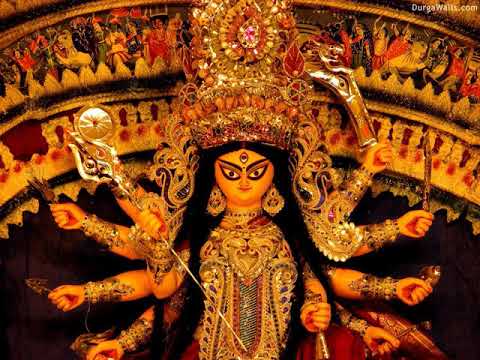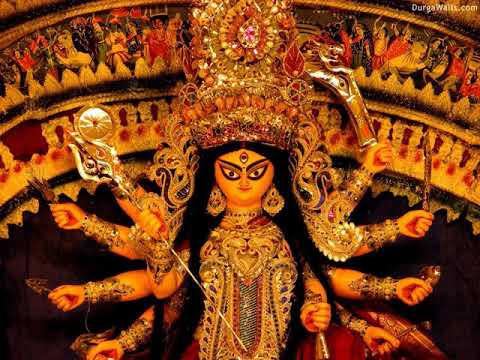
Product Details
AADI AMAVASYA MAHA CHANDI HOMAM 4.8.24
Read this Description in FULL before ORDERING for HOMA
Sankalpa Prasadam : Special Akarshana Raksha of Chandi (MudiKayiru) 4 Nos. & Special Kungumarchana Prasadam
FOR DIRECT ATTENDEES-FREE : (ONLY FOR THOSE WHO ATTEND DIRECTLY BY 2 PM) A unique and Special Tantric Pariharam for removing karma and obstacles in life-Black urad dal pariharam will be done to all who attends directly.
Please Note : Prasadam WILL BE SENT only after the HOMAM finishes.
-
DO NOT WHATSAPP RECEIPT OR STAR DETAILS
-
ENTER YOUR PHONE NUMBER WITHOUT FAIL.
-
WHATSAPP OR TELEPHONE SERVICES ARE STRICTLY NOT ALLOWED.
Date: August 4th, Sunday 2024 Time : 2:00 PM ONWARDS
Place : PTMS,Pattabhiram, Aishwarya Ashta Buja Varahi Amman Temple
Address : Sri Selva Vinayagar and Kalyana Raamar Aalayam
ஶ்ரீ செல்வ விநாயகர் அண்ட் கல்யாண ராமர் ஆலயம்
அஷ்ட புஜ ஐஸ்வர்ய வராஹி கோவில்
43M5+H2X, PTMS, Pattabiram, Tamil Nadu 600001
Location : https://g.co/kgs/heJ67FT
Maha Chandi Homam: Overview and Benefits
Maha Chandi Homam is a sacred Hindu ritual dedicated to Goddess Chandi, an intense and powerful form of Goddess Durga. This Homam aims to invoke the divine energy of the goddess to bring positive changes in the performer's life by removing obstacles, overcoming enemies, and rectifying Doshas (planetary afflictions) in the horoscope.
Significance of Goddess Chandi
Goddess Chandi is a fierce manifestation of Shakti, the Hindu goddess of power. She symbolizes feminine strength and energy. The name "Chandi" means "She who tears apart thought," indicating her power to destroy thoughts that feed the ego and divert individuals from the righteous path. She is usually depicted with a black or red complexion, possessing 12 arms, each holding a weapon or symbol of power and destruction.
Auspicious Times for Maha Chandi Homam
Chandi Homam is typically performed during the daytime, often during Navratri or on auspicious days like Ashtami, Navami, Chaturdasi, Magha, Amavasya, Aadi Amavasya,Thai Amavasya, Jyeshta Amavasya, Chaitra, Karthika, or Pournami.
Ritual Procedure
Preparation: The performer installs the idol of Goddess Chandi alongside Lord Ganesha's idol and performs a Ganapati Pooja to seek the blessings of the Lord of Beginnings.
Homakunda Setup: A sacred fire is created in a Homakunda using materials such as camphor, dry coconut, and dry grass.
Mantra Recitation: Special mantras are chanted to invoke the goddess.
Worship: The performer worships elderly married women, aged couples, and bachelors.
Durga Saptashati Recitation: The Durga Saptashati (Chandi Path) is recited to honor the goddess.
Aarati: An Aarati is offered to the goddess as a sign of respect and gratitude.
Benefits of Maha Chandi Homam
Overcoming Obstacles: Removes barriers and challenges in life.
Success: Ensures success in all endeavors and victory over enemies.
Positivity and Happiness: Brings positivity and happiness into the performer's life.
Protection from Evil: Liberates from evil eyes, curses, black magic, and negative energies.
Good Health and Wealth: Bestows good health, wealth, and prosperity.
Cure from Illnesses: Helps in curing serious illnesses.
Spiritual Benefits: Provides inner peace and spiritual energy.
Who Should Perform Chandi Homam?
Individuals with planetary afflictions in their horoscope.
Victims of evil spells, curses, black magic, or witchcraft.
Those facing Financial Debts, Fears, including fear of death.
Individuals seeking relief from sins and Doshas.
Importance in Shaktism
Maha Chandi Homam holds special significance for followers of Shaktism, who believe in the supreme power of the goddess. The ritual often involves chanting the Chandi mantra 700 times and is particularly observed during the Navratri festival in India.
Requirements for Maha Chandi Homam
Pandit: A highly skilled and experienced pandit (priest) is essential, with deep knowledge of Hindu scriptures and rituals.
Preparation: Includes selecting an appropriate location, gathering necessary materials, and arranging the puja ceremony.
General Benefits of Chandi Homam:
Overcoming Obstacles: Helps in removing obstacles and barriers in life.
Success: Assists in attaining success and triumphing over enemies.
Positivity and Happiness: Blesses the devotee's life with positivity and happiness.
Protection from Evil: Provides protection from evil eyes, curses, and negative energies.
Good Health and Wealth: Brings good health, wealth, and prosperity.
Cure from Illnesses: Aids in curing serious illnesses.
Spiritual Benefits: Grants spiritual benefits like inner peace and enhanced energy.
Chapter-Specific Offerings and Associated Blessings
Chapter 1:
Offering: Vilam (Wood Apple)
Deity: Chatsad Mahakali
Blessing: Enhanced grace and blessings.
Chapter 2:
Offering: Coconut
Deity: Mahalakshmi
Blessing: Career promotion and prosperity.
Chapter 3:
Offering: Liquorice and Honey
Deity: Mahadevi
Blessing: Enhanced charm and attractiveness.
Chapter 4:
Offering: Betel Nut
Deity: Jayadurga
Blessing: Protection from negative influences, especially if Rahu is present.
Chapter 5:
Offering: Guava Fruit
Deity: Mahasaraswati
Blessing: Success in education for children.
Chapter 6:
Offering: Orange and Narat Fruits
Deity: Goddess Padmavati
Blessing: Peace and harmony in the family.
Chapter 7:
Offering: Pumpkin
Deity: Samundi/ Mathangi
Blessing: Destruction of enemies and attainment of royal wealth.
Chapter 8:
Offering: Sugarcane
Deity: Bhavani / Shaptamata
Blessing: Sweetness in life and prosperity.
Chapter 9:
Offering: Pumpkin and Sugarcane
Deity: Ardhambhikai
Blessing: A meaningful and fulfilling life.
Chapter 10: Offering: Narat Fruit
Deity: Kameshwari
Blessing: Enhanced charm and attraction.
Chapter 11:
Offering: Pomegranate
Deity: Goddess Bhuvaneswari
Blessing: Happiness and fragrance in married life.
Chapter 12:
Offering: Bow
Deity: Agnidurga
Blessing: Unshakeable strength and stability.
Chapter 13:
Offering: Banana Fruit
Deities: Lord Shiva and Goddess Chandi
Blessing: Overall blessings and grace.


